UPD 2024
Discussions during the 10th edition of UPD will be centred on urban transformation strategies, governance reform, financing of growth-oriented,
resilient infrastructure, land information systems, high performance buildings, social protection, and leveraging sustainability reporting frameworks.
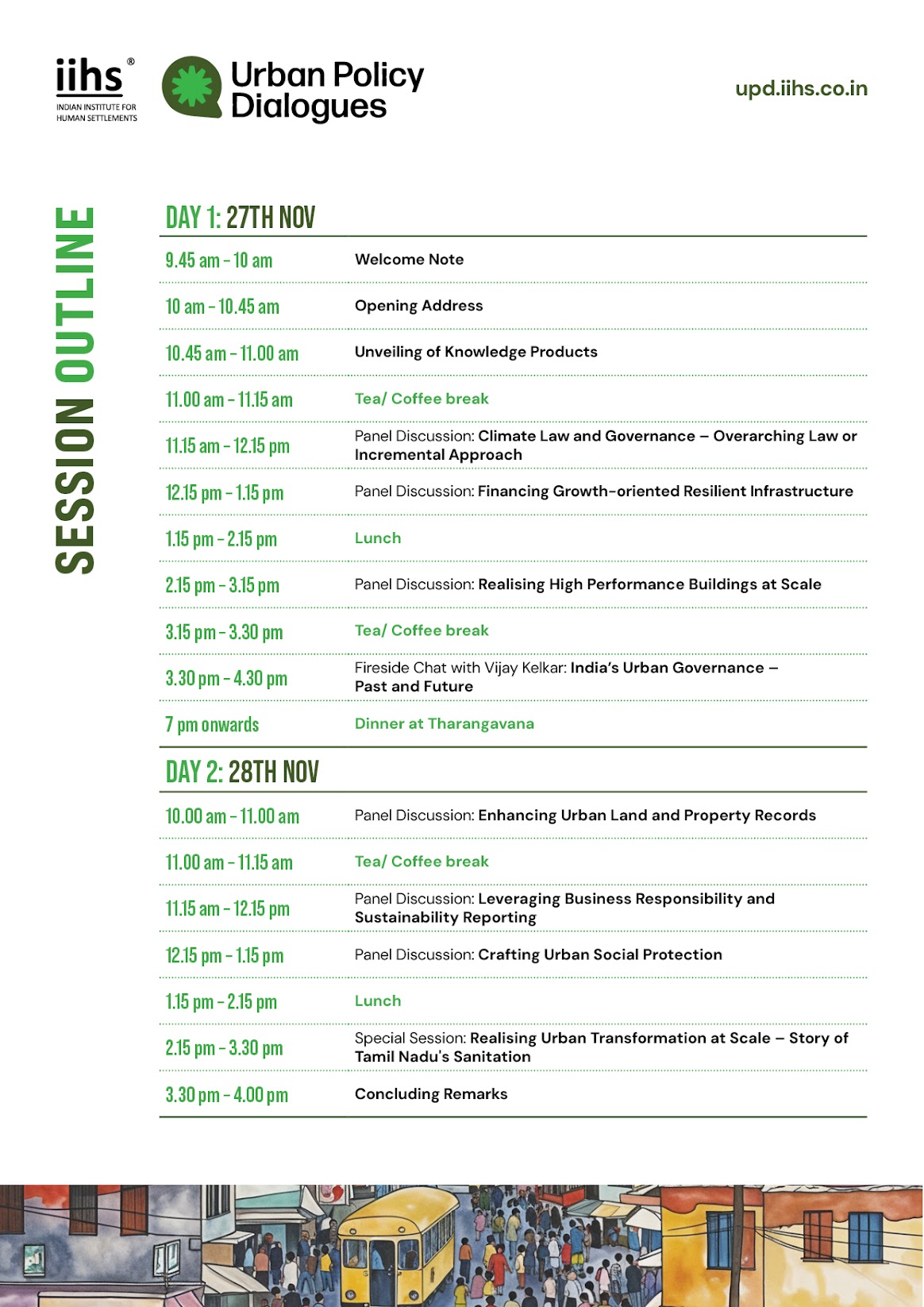
SESSION TITLE: CLIMATE LAW & GOVERNANCE: OVERARCHING LAW OR INCREMENTAL APPROACH?
27 November 2024 | 11.15 am – 12.15 pm
Moderator: Amlanjyoti Goswami, Chief – Legal & Regulation, IIHS
India’s Supreme Court has recently affirmed that the citizen’s fundamental right to a healthy environment includes ‘the right against adverse effects of climate change’. The country is making efforts to meet its climate action commitments through executive policy action and investment incentives, linked to national and state Action Plans for climate change and associated missions. While some progress has been made around the energy transition, outcomes on most other dimensions need further effort.
Unlike an increasing number of low-and middle-income countries, climate action in India is neither coordinated and reinforced nor incentivised by an explicit, legally enforceable framework, other than through pre-2015 environmental laws.
There is a view that India should persist with its historical incremental and climate justice-centric approach given its low per capita emissions and commitment to achieve net-zero targets by 2070 and prioritise filling its infrastructure deficit to meet the aspirations of its 1.5 billion citizens. However, there is an emerging concern that reliance on executive action alone may not be sufficient to deal with the multi-sectoral and multi-scalar sweep of climate change; its disproportionate impact on vulnerable populations and geographies; and, the potential of climate lock-in to close off development pathways.
A case has been made for laws that re-orient the economy and society to a low carbon and climate-resilient future and create greater space for accelerated and cohesive action. There have also been calls for a comprehensive new robust framework legislation for climate change, or at the very least, various amendments in existing environmental, energy and infrastructure related legislation.
In this backdrop, the proposed session will reflect on the following questions:
- What should be the components of an integrated and effective development-led climate change response system for India be like, at Central and State levels?
- Is the current approach adequate to deal with climate change? What kind of legislative changes are needed, either as a systemic framework enactment or specific legislation to ensure that India continues the path of sustainable development?
- What is the role of the judiciary in interpreting laws and enforcing action, particularly after the Ranjitsinh v. Union of India case?
- How can we move away from a strict command and control approach (as seen in many 20th century environment laws) towards one that incentivises better and timely outcomes, while enabling more market and community linked initiatives to flourish?
SESSION TITLE: FINANCING GROWTH-ORIENTED RESILIENT INFRASTRUCTURE
27 November 2024 | 12:15 pm–1:15 pm
Moderator: Manish Dubey, Chief- Practice, IIHS
Infrastructure investments have a powerful multiplier effect on growth and development. This realisation has driven sharp increases in India’s public spend on infrastructure development in recent years. Projections for 2030 suggest that the trend is expected to sustain. Notwithstanding the increased infrastructure investment, there remain areas of concern. One: Infrastructure investments, while sizeable and growing, may be just about half the requirements. Two: The Union and State governments, which have led the investment surge, could be constrained in sustaining their significant contribution in the coming years. Three: There’s a case for reflecting on whether India’s current infrastructure development trajectory has led to the quantum and quality of growth and jobs the country needs to realise. Four: Given India’s existing and emerging climate and disaster risk profile, resilience needs to be more strongly embedded in infrastructure development efforts; else, there’s the prospect of building the India story on a fragile edifice.
In this backdrop, the proposed session will reflect on the following questions:
- Why has private sector interest in infrastructure investment remained low, despite the appeal of infrastructure as an asset class? What lessons can we draw from the experiences in sectors such as roads and renewables, where private sector interest has been more evident and where both foreign direct investment (FDI) and InVITs have found favour? Or are there unique characteristics in the roads and renewables sectors that make their experience difficult to transfer to other sectors?
- What constrains institutional investors, domestic and foreign, and sovereign wealth funds from infrastructure investments in India? What specific enabling measures must we contemplate to unlock these constraints?
- How should resilience be hardwired into infrastructure development planning and execution? Will design and performance specifications, procurement practices, and financial incentives (including treatment of resilient infrastructure as a separate asset class) help?
- How can the infrastructure development agenda be better aligned to growth and job creation outcomes? Are there ways in which infrastructure development plans, configurations on ground, and investment outcomes can be better monitored for growth and job multipliers to be better realised? Is there a case for complementary capital investments and soft interventions to be woven into infrastructure development plans?
SESSION TITLE: REALISING HIGH PERFORMANCE BUILDINGS AT SCALE
27 November 2024 | 2:15 pm–3:15 pm
Moderator: Prasad Vaidya, Senior Advisor, IIHS
High performance buildings (HPBs) are a game-changing opportunity to transform India’s large, rapidly growing, and energy and carbon intensive real estate sector, particularly the commercial segment where energy intensity and carbon intensity is highest. Even if half of India’s projected 2030 commercial building were to be constructed/ retrofitted on high performance principles, the country will, over the 50 year life of these buildings, save businesses over USD 430 billion in energy costs, create 10 million permanent and skilled green jobs, avoid 600 million tCO2-eq of greenhouse gas (GHG) emissions, and help reprioritise USD 1.1 billion of public sector energy investments. Encouragingly, the business and climate case for HPBs has already been demonstrated by Indian industry pioneers.
Yet, despite a range of efforts aimed at addressing regulatory, financing, and capacity gaps in the design, construction, and retrofit of HPBs, beginning with introduction of the Energy Conservation Building Code of India in 2007, HPBs are yet to be realised at the scale needed. This can lock-in massive energy and water inefficiency, high carbon emissions, and a poor living and work environment for millions of Indians in the years to come and calls for renewed effort to translate the opportunity HPBs present for powering India’s emerging green and circular economy.
In this backdrop, the proposed session will reflect on the following questions:
- What are the primary reasons that have held back the scale-up of HPDs, despite evidence that suggests they can be built at little or no additional costs and offer an attractive return on investments and present prospects for leveraging climate finance and ESG investments?
- Are there emerging policy, regulatory, and financing signals that can be leveraged for enabling a decisive market shift? What measures can be initiated to strengthen and complement these signals?
- What lessons do international experiences offer in terms of policy propositions and practices, and how can these be adapted to the Indian context for realising HPBs at scale?
SESSION: ENHANCING URBAN LAND AND PROPERTY RECORDS
28 November 2024 | 10.00 am– 11.00 am
Moderator: Deepika Jha, Senior Consultant – Practice, IIHS
Reliable urban land and property records are essential to ensure citizen’s ease of living and working, accelerate the pace of infrastructure development, and strengthen public and municipal finances. Yet, most Indian cities grapple with outdated, fragmented, or incomplete records.
In a recent and significant policy move, the Union government has launched ambitious schemes to remedy the situation. This includes an incentivisation scheme for carrying out aerial surveys and resolution of claims and support to 120 cities for large scale mapping of urban areas and creation of GIS based web portals.
Even as some States have taken the lead in updating urban property records, the recent Union government announcements promise, for the first, a dedicated resource pool for improving urban land and property records in the country.
New and efficient survey technologies, including those that mesh Artificial Intelligence and Machine Learning, are expected to abet the process. However, challenges abound, including fragmented institutional responsibilities, overlapping jurisdictions, lack of standardised practices, and data silos across different administrative bodies.
In this backdrop, the proposed session will reflect on the following questions:
- What can be the possible institutional alignments between revenue departments, urban development departments, urban local bodies, and the private sector, to create and maintain urban land and property records in Indian cities? What insights are provided by State level experiences, and what additional steps are necessary to achieve a comprehensive, reliable, and user-friendly urban land and property information system?
- How should strategies for land and property record creation be tailored to accommodate the different sizes and resource capacities of Indian cities, towns, and peri-urban areas? How can States or cities find a balance between legally valid ownership records and the GIS records being created, including safeguards to ensure equity?
- How can newer record sets be leveraged to create a more dynamic and updated urban land and property information system, using an open data approach? What has been the experience of housing and infrastructure financing institutions, as well as technology service providers, in engaging in this field, and what potential do they see in further supporting urban land information system reforms?
SESSION: LEVERAGING SUSTAINABILITY REPORTING FOR BUSINESSES
28 November 2024 | 11.15 am– 12.15 pm
Moderator: Amir Bazaz, Head- Infrastructure and Climate
Sustainability reporting, where businesses periodically disclose their economic, environmental, social, and governance practices and performance, has gained high currency in business circles in recent years, both within and outside India. This is driven by: policy changes and regulatory requirements that are seized of business’ expanding influence on the environment and society; an improved appreciation among businesses themselves of sustainability as a strong driver of business choices and decisions; and, the potential that reporting on sustainability presents for signaling responsible corporate citizenship, to a range of stakeholder groups.
Sustainability reporting has variedly been guided by initiatives such as Science-based targets, the Global Reporting Initiative (GRI), and most recently within the Indian context, the Business Responsibility and Sustainability Reporting (BRSR) framework.
Sustainability reporting is known to have offered opportunities for businesses to systematically reflect and strategise better on reporting and disclosure, promising, an improved alignment of business, environmental, and social goals. Yet, there remain concerns around the appropriateness of these reporting frameworks to trigger business decisions. Further, while their quality of reporting has improved, its completeness in terms of coverage, essence, and intent remains an open question.
Unless addressed, these, cumulatively, could undo the promise of sustainability reporting, hurting business performance and worsening the environmental and social circumstances they thrive on in the long run.
In this backdrop, the proposed session will reflect on the following questions:
- How has sustainability reporting evolved in India? How are businesses leveraging it? What has been the experience of operationalising multiple sustainability reporting frameworks?
- To what extent has sustainability reporting in India supported the embedment of sustainability principles in business operations and practices?
- What challenges exist in mainstreaming sustainability as a key business criterion, including challenges arising from gaps in reporting frameworks themselves and capacity gaps both on dimensions of sustainability reporting and leveraging sustainability as a strategic pivot?
- How can sustainability reporting be better leveraged to drive deeper and wider environmental, social and governance impact?
SESSION TITLE: CRAFTING URBAN SOCIAL PROTECTION
28 November 2024 | 12.15 pm– 1.15 pm
Moderator: Gautam Bhan, Head- Human Development, IIHS, Associate Dean- IIHS School of Human Development
India has been building integrated social protection systems across food, pensions, work guarantees, maternity benefits and health. Many of these systems have longer histories and stronger contemporary impacts in rural areas. Delivery of urban social protection has lagged and has been often defined by a ‘rural imagination’. As the COVID-19 experience showed, our cities offer significant challenges of universal access to meaningful social protection and safety nets that than address poverty and vulnerability, and also enable mobility and flourishing.
Designing and implementing urban social protection regimes requires at least two considerations. The first is to examine what social protection entitlements urban residents should have – what is the right social protection package for a transitioning economy? The second is engage with questions of governance, financing, and institutional design and delivery in the context of India’s multi-level governance and fiscal federalism.
The delivery of effective, equitable and sustainable urban social protection entitlements (including to mobile and migrant workers) by ULBs with constrained mandates, inadequate staffing, weak and data systems is a serious challenge to be overcome. The country’s experience of urban social protection varies across State and regional contexts, offering considerable potential for cross-learning from domestic experiences.
In this backdrop, the proposed session will reflect on the following questions:
- What should be the components of an integrated and effective social protection system for urban residents?
- How should this system tackle mobility that is inextricably linked with urban areas as workers and residents move in and out of cities?
- Can urban employment guarantee programmes create effective safety nets for urban workers?
- How can social protection be expanded to create care infrastructure?
- What kind of delivery mechanisms can not only enable rights but reliable and sustainable services?
SESSION TITLE: REALISING URBAN TRANSFORMATION AT SCALE – THE STORY OF TAMIL NADU’S SANITATION
28 November 2024 | 2.15 pm– 3.30 pm
Moderator: Manish Dubey, Chief- Practice, IIHS
The Tamil Nadu Urban Sanitation Support Programme (TNUSSP) is among the largest local clean water and sanitation (SDG6) implementation programmes in the world. With the ambition of scaling urban sanitation through decentralised sanitation systems across 650 towns and cities in Tamil Nadu, it has already reached a population of 18 million, making it a rare global example of a decentralised service delivery system that has been scaled across the rural-urban continuum for an entire State/ region.
Implemented over eight years, starting 2016, the TNUSSP’s transformative effect has been enabled through empowered multi-level governance, institutional strengthening and regulation, enterprise development, technological innovation, digital support and extensive behaviour change and communication. Its multi-dimensional approach has been successfully institutionalised in Tamil Nadu’s public agencies and programmes, from the State government to urban and rural local bodies.
With the TNUSSP reaching its scheduled phase-out in 2025, this is an appropriate moment to reflect on its journey. The panel will bring together a diverse set of stakeholders for the panel across government, donor, community members, and implementors to understand the lessons that the TNUSSP experience holds for those contemplating scalar transformations, in other urban domains and contexts.


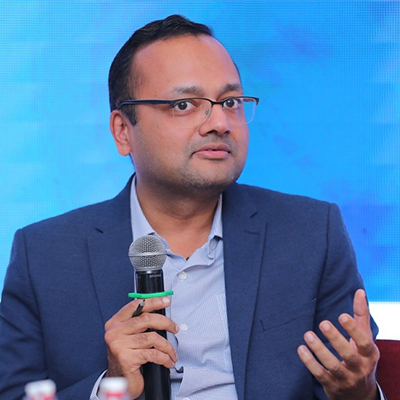


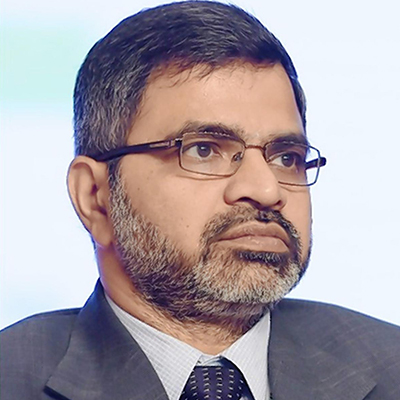









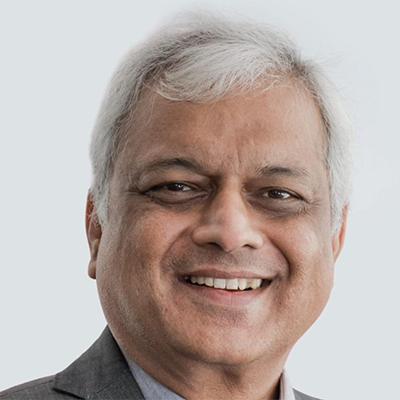



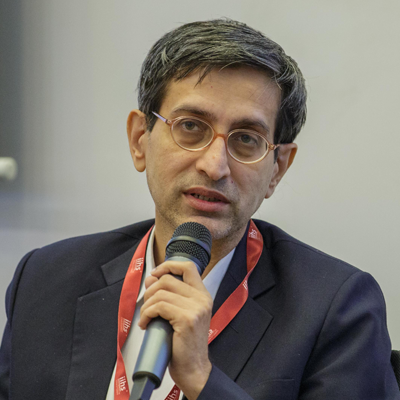
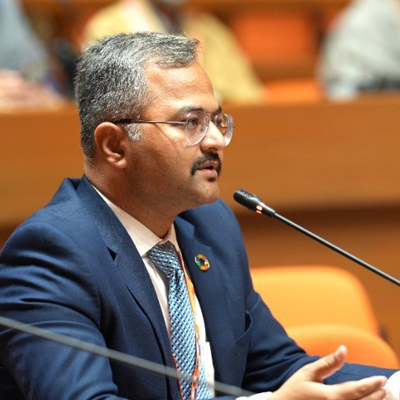
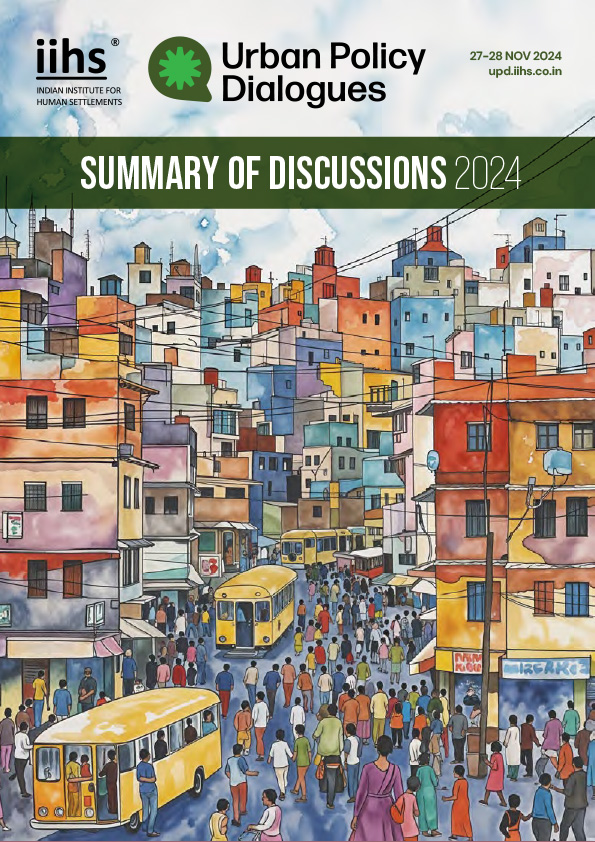 Summary of Discussions 2024
Summary of Discussions 2024
The Summary of Discussions is a key document, released after the completion of the IIHS Urban Policy Dialogues, and it highlights key points from a each of the sessions, providing a quick yet comprehensive view of the discussions at the event.
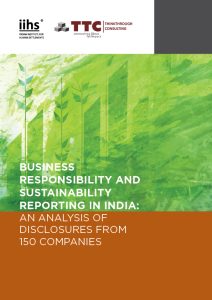
Business Responsibility and Sustainability Reporting in India: An Analysis of Disclosures from 150 Companies
Reporting on non-financial parameters is increasing across businesses worldwide and is largely been driven by corporate consciousness and regulatory interventions. The present study focuses on the current Business Responsibility and Sustainability Report (BRSR) framework and assesses emerging trends and patterns on sustainability reporting. We also identify critical gaps and insights meant for triggering widespread transformation leveraging reporting on key parameters as a starting point. Our present study and the analysis is based on sustainability disclosures of the top 150 companies listed on the Bombay Stock Exchange (BSE), as on August 2024
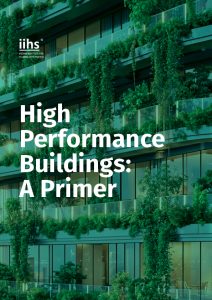 High Performance Buildings: A Primer
High Performance Buildings: A Primer
High-Performance Buildings (HPBs) are designed to maximise resource efficiency and cost-effectiveness, optimising energy, water, and indoor environmental quality throughout their life-cycle. These buildings outperform benchmarks established by Indian standards, such as the Energy Conservation Building Code (ECBC) and the National Building Code (NBC), consuming 50% (Factor 4) to 25% (Factor 2) of typical energy and water usage. HPBs adhere to stringent requirements for indoor air quality (IAQ), waste management, and resilience. Furthermore, they undergo continuous monitoring and performance verification to ensure sustained efficiency and long-term sustainability.
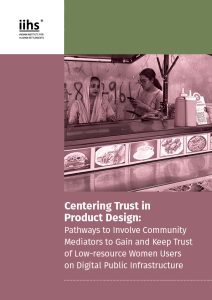 Centering Trust in Product Design: Pathways to Involve Community Mediators to Gain and Keep Trust of Low-resource Women Users on Digital Public Infrastructure
Centering Trust in Product Design: Pathways to Involve Community Mediators to Gain and Keep Trust of Low-resource Women Users on Digital Public Infrastructure
This brief contains design pathways that will deliver on a shared digital future which aims to incorporate community and shared access as a key facet of technology creation. It responds specifically to the question: Is digital public infrastructure ready to be responsive to the needs of low-resource women users to better women’s earnings and livelihoods? What can the role of women’s associations and worker collectives be in the ecosystems built around digital public infrastructure in livelihoods and skilling?
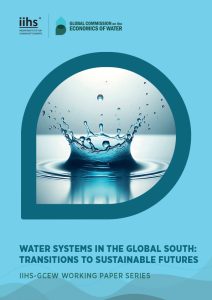 Water Systems in the Global South: Transitions to Sustainable Futures (IIHS-GCEW Working Paper Series)
Water Systems in the Global South: Transitions to Sustainable Futures (IIHS-GCEW Working Paper Series)
Significant gaps and inequities in urban water and sanitation services persist, with a growing risk of exacerbation due to changes in the climate, global water cycle, and patterns of urbanisation. Urban water and sanitation systems need to transition to accelerate access to safe, equitable, and sustainable water and sanitation services, while enhancing resilience to respond to increasing risks. This paper reviews the persistent challenges in water and sanitation services, emerging risks from climate change, and imbalances in the global water cycle that threaten to impact urban water cycles, and potentially disrupt existing urban Water, Sanitation and Hygiene (WASH) systems. It identifies critical concerns in three areas: institutional arrangements (including informal service provisioning), technology and infrastructure, and financing (including operations and maintenance). The paper concludes by identifying critical elements required in these areas for successful transition of water and sanitation services and systems.
